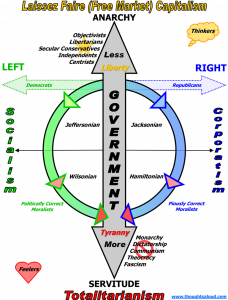 Alternate Universe
Alternate Universe
When Drudge this morning had the headline, “SALON.COM EDITOR RIPS: The new Great Communicator …isn’t,” I couldn’t resist reading it. It was a frightening trip into an alternative universe. Hard as it is to comprehend, one comes away with the unmistakable impression that this ditzy socialist actually believes the nonsense she is spouting:
Democrats know the Republicans are wrong. Little children know they’re wrong. Cats and dogs know they’re wrong. But somehow this week, unbelievably, Obama and the Democrats seem to be losing the spin war. There are the worrying poll numbers. And there is the Washington Post report that Senate Democrats don’t have the votes to pass a stimulus bill yet, at least not with the 60 votes that would rule out a filibuster. In this economic crisis, with 2.6 million jobs lost last year and thousands more lost in every news cycle, what does it take to create the urgency and responsibility to get this done?
I’d like everyone in charge of selling the stimulus to take a deep breath, and then, in an extended sound bite, articulate the long view (I know, I ask a lot). Along with Reich, Jeff Madrick goes into all the larger issues in greater detail in his excellent book “The Case for Big Government,” and winds up in the same place (even though, remarkably, the book was written before the current economic collapse and attendant debate over what the stimulus should do). I hope Obama and his team are reading Madrick and Reich. Because they’re really just talking common sense: Public spending priorities need to catch up to 21st-century economic life. The long and lamentable Republican revolution of 1980 through 2008 aimed, and partly succeeded, in sending us back to the 19th century — and we are all suffering for it. We will continue to suffer unless Democrats grab the political momentum voters gave them in November.
Of course, the 19th century wasn’t all bad, but in our current political environment, we’ve forgotten what was good: Eventually government (thanks to political, religious and labor agitation) came to see its role as providing K-12 education, building roads, canals, bridges and railroads (after private sector efforts faltered), and the slow budding of certain health and safety regulations. In the 20th century, that public mandate expanded into Social Security, Medicaid, unemployment insurance and other safety net programs, thanks to the New Deal and the Great Society. Today, profound economic change likewise requires new government initiatives, but they are many years overdue, for a lot of depressing political and economic reasons. The years since the early 1970s have been hard for middle- and low-income workers. Real wages became stagnant — the average weekly earnings of non-supervisory workers actually fell between 1973 and 2005. The late ’60s and early ’70s also marked the exodus of manufacturing jobs in the central cities, which William Julius Wilson and others persuasively argue played a huge role in creating the so-called underclass in many once-vital African-American neighborhoods.
Madrick lays out a few new-economy political priorities; you may have more, add them in comments:
Why, when post-secondary education is essential in this economy, are most families on their own when it comes to paying for college? Secondary education is awesome, isn’t it? Can you imagine this country without it? But isn’t it time to think beyond that? Why isn’t K-16 or so an American entitlement?
She was just getting wound up. If you need a window into what the progressives have done to the minds of our youth, just read this remarkable screed for a stunning example of a completely brainwashed mind that is utterly beyond reason. It is breathtaking. â—„Daveâ–º

Fools are prevalent in both major parties. Whatever foolishness most people are hardwired with that causes Republican idiots to create a deity and attribute to it all of their own opinions seems to also inflict Democrats, who deify the government and ask it to save them from themselves.
Agreed. Well said. â—„Daveâ–º